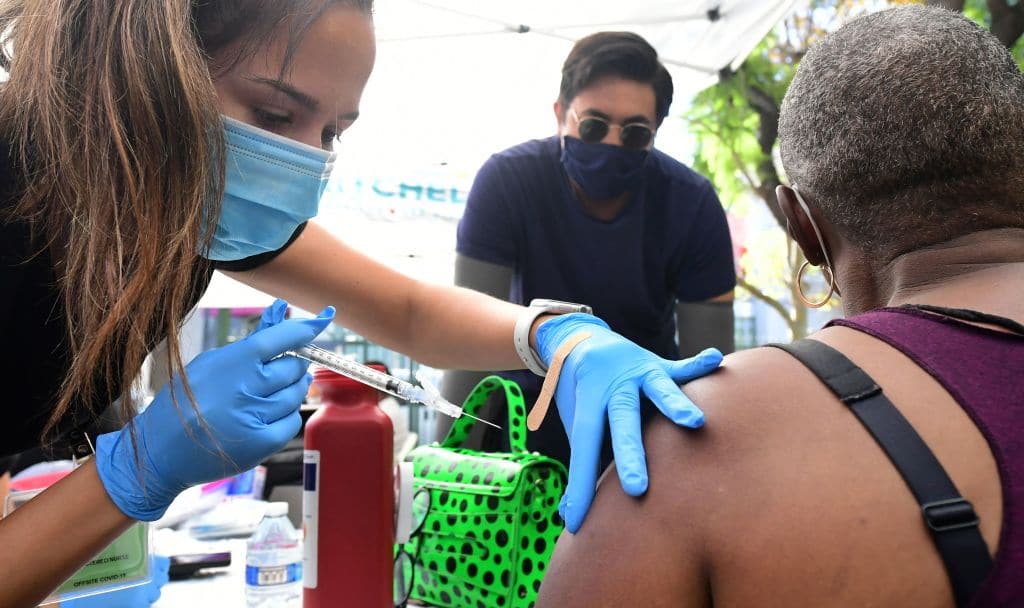TOPLINE People who received Johnson & Johnson’s Covid-19 vaccine may benefit more from a Moderna or Pfizer booster shot, preliminary data from a U.S. study showed on Wednesday, a finding that comes as the Food and Drug Administration raised concerns about the trial data of J&J’s booster shots.
KEY FACTS
The National Institutes of Health-funded study on mixing and matching Covid-19 vaccines featured 458 adults who received one of the three U.S. approved vaccines—Pfizer, Moderna or J&J—and received booster shots later.
The researchers then analyzed antibody levels among participants 15 days after the booster shot.
Among people who originally received a J&J shot, antibody levels were four times higher after a J&J booster, 35 times higher after a Pfizer booster and 76 times higher after a Moderna booster.
The study also found that Moderna recipients had higher antibody levels “irrespective of the booster vaccine administered,” when compared with those who had initially been inoculated with the Pfizer or J&J vaccine.
The study found no safety concerns with mixing and matching the vaccines.
BIG NUMBER
14.9 million. That’s the total number of people in the U.S. who have received the single dose J&J Covid-19 vaccine, according to the Centers for Disease Control and Prevention (CDC). The CDC’s tracker also shows that 10,029 people have received a J&J booster dose even though this has not been formally approved by the FDA.
WHAT TO WATCH FOR
The NIH-funded study’s findings and the FDA’s mixed review of J&J’s booster shots data may lead to debates about what booster shots will be offered to nearly 15 million recipients of the single-dose vaccine. So far, the supply of Pfizer and Moderna’s mRNA vaccines has far outstripped that of J&J’s shot. According to the CDC’s data, Pfizer has delivered more than 273 million doses and Moderna has delivered more than 191 million doses compared to J&J’s 23.5 million.
KEY BACKGROUND
Earlier on Wednesday, the Food and Drug Administration published its analysis of J&J’s vaccine booster and noted that it appeared to be beneficial, but the regulator questioned the sensitivity of a test the company used in its trials. Data shared by the vaccine maker showed that a second dose of the J&J shot given two months after the first dose boosted its effectiveness in preventing disease to 75%. However, J&J’s data was not submitted in time for the regulator to independently verify the company’s analysis, the FDA said in its document. The authors of the FDA document raised concerns that the test used by the company to measure immune responses in some trial participants may not have been sensitive enough and therefore could have inflated the efficacy. An FDA advisory panel will meet on Friday to consider whether to recommend the use of a J&J booster shot. Last month, the agency authorized Pfizer booster doses for seniors and other high-risk patients.
FDA Says J&J Covid Booster Likely Boosts Immunity, But Evidence Isn’t Foolproof (Forbes)
By Siladitya Ray, Forbes Staff
